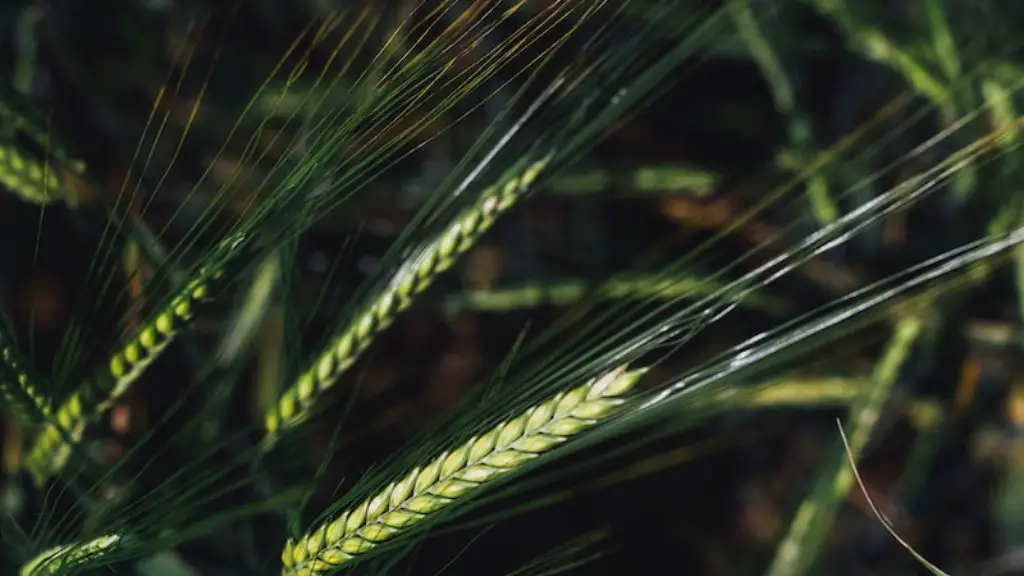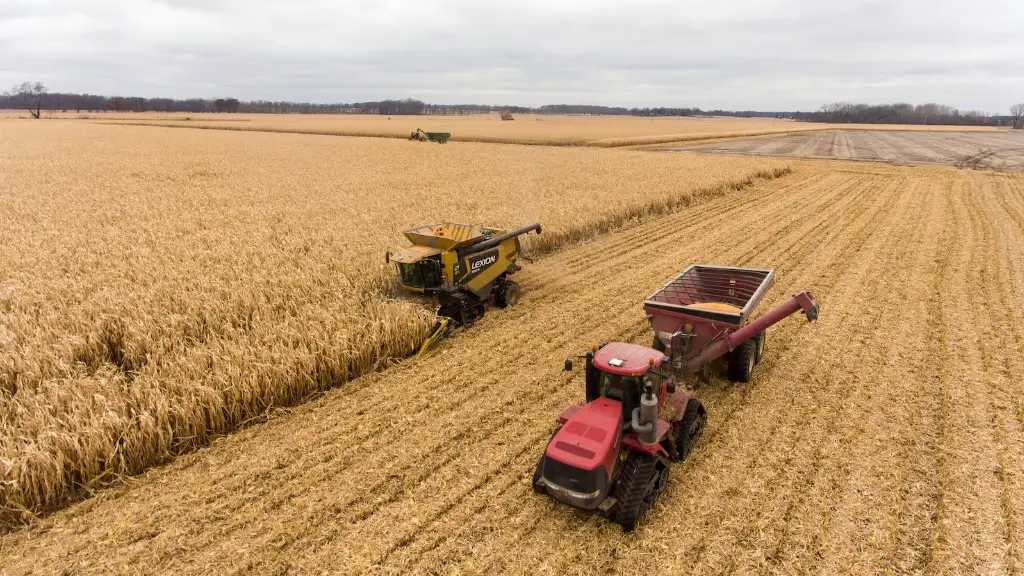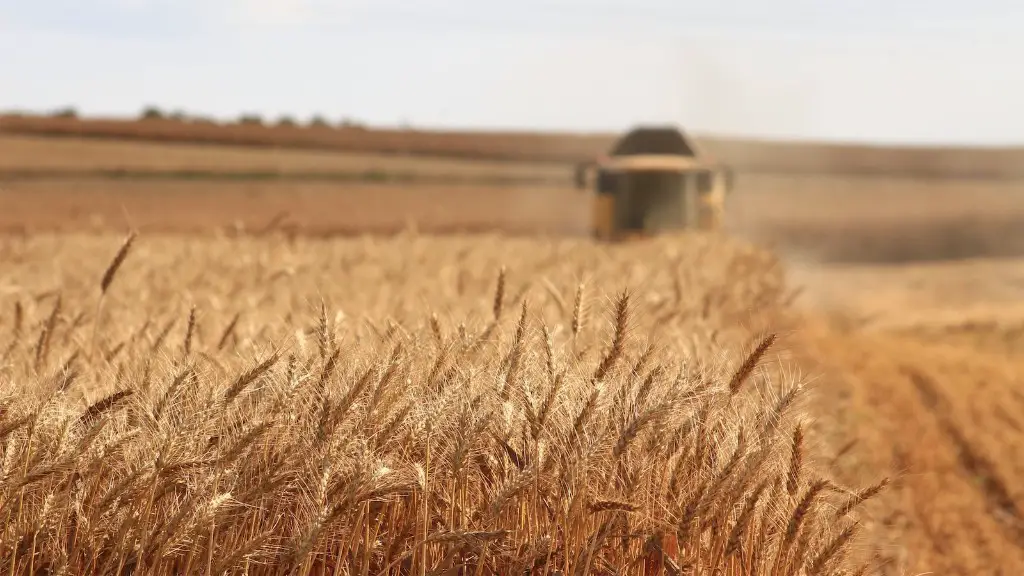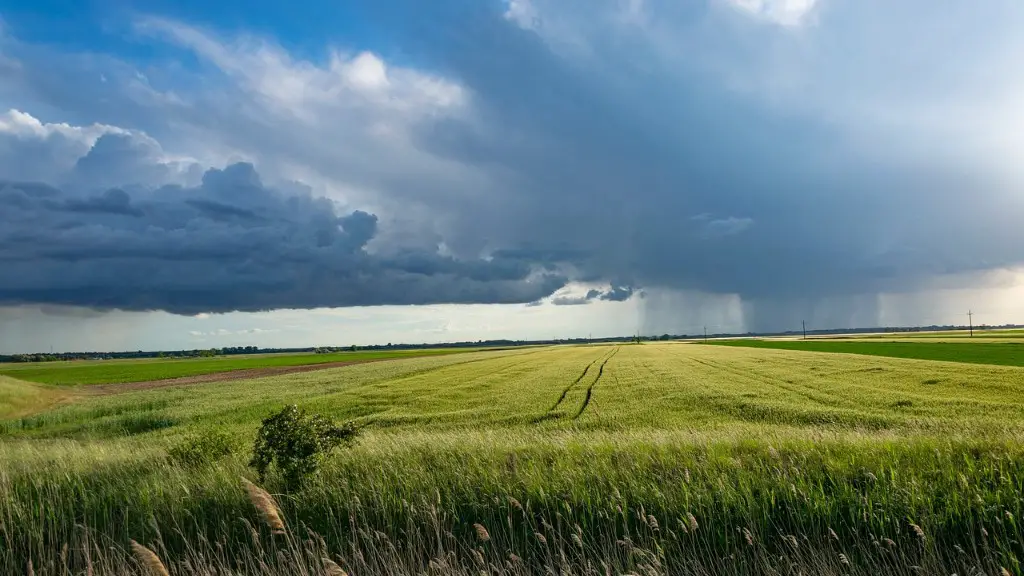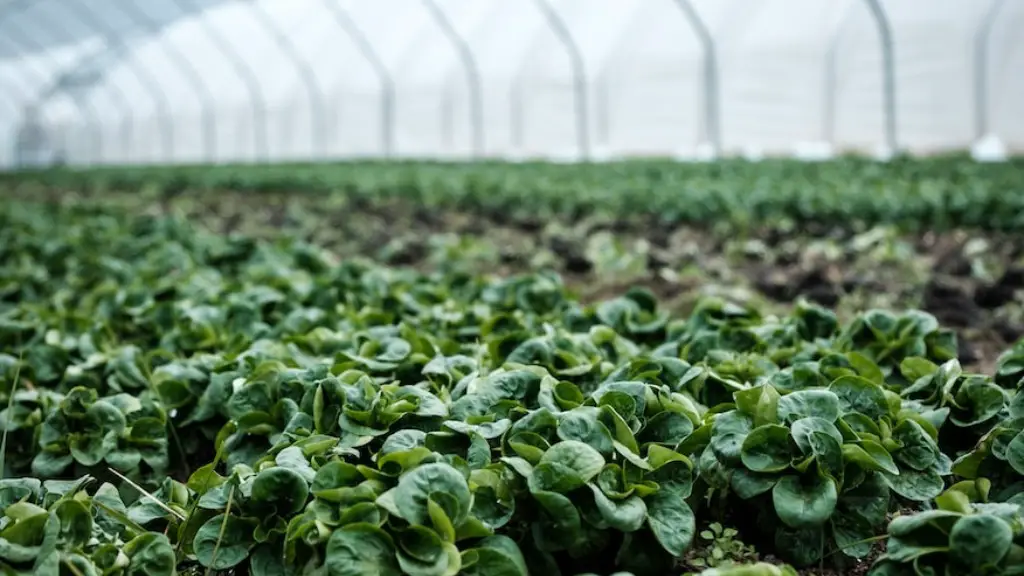Modern agriculture has become a critical part of our everyday lives. Not only does it provide the sustenance needed to survive, it also has provided numerous economic, environmental, and cultural benefits. The importance of agriculture is clear, but what are some of the reasons why? Here are seven reasons why agriculture is so important.
1. Provides Food Security: One of the most important reasons why agriculture is important is because it provides food security. By growing and producing crops and animals, humanity is provided with the sustenance to survive. This includes grains, fruits and vegetables that are nutrition-packed and provide necessary energy and minerals in varying diets around the world.
2. Promotes Economic Growth: Agriculture is an integral part of economic growth and development. By providing employment opportunities, agricultural goods, and agricultural resources, it helps to spur the local economy towards further improvement. Furthermore, the trade of goods and services between different countries shows the importance of agriculture on an international scale.
3. Appreciates Nature: Agriculture has a great impact on the environment. Through farming, humans have the ability to shape and alter the landscape in ways that are conducive to food production. By understanding and balancing the elements of nature, humans gain the opportunity to amplify their sustainability, conserve natural resources, and absorb pollutants.
4. Spreads Cultural Diversity: Agriculture is intertwined with culture, providing a way to create unique, distinct identities within a population. In doing so, it gives our planet a great diversity of cultures, ethnicities, and beliefs, which may not exist otherwise.
5. Builds Community: Farming and agricultural practices, when done within a local region, help to build a sense of unity and community among stakeholders, workers, and laborers. It allows people to come together to address common issues and develop systems and strategies to increase investment and output.
6. Generates Profits: Agricultural yield directly affects the prices of essential goods such as food and products. By producing a good amount of income, this helps to spur economic growth and development by creating jobs, providing improved infrastructure and services, and enabling access to advanced resources. Furthermore, this profit-generating potential also has environmental benefits, as more investment in sustainable and organic farming can help to reduce soil erosion, air pollution, and water contamination.
7. Encourages Innovation: Agriculture encourages innovation in terms of eco-friendly practices that require knowledge of modern technology and the environment. This kind of innovation helps to minimize the impact our agricultural practices have on the environment and encourages sustainability.
Agriculture’s Role in Society
The role of agriculture in society is undeniable, not only in terms of providing sustenance and economic benefits, but also in inspiring culture and creativity. Since agriculture is a must in sustaining life, it is important to recognize and embrace its importance. By understanding the needs of the environment and its communities, humanity can use agriculture as a platform to create sustainable and safe environments that provide of food and other resources.
Currently, agriculture is facing a number of challenges, such as an increasing population, changing climate, and a lack of knowledge and resources to sustain it. These effects are felt around the world, and it is essential for change to come from understanding and adaptation. Some of the more promising developments that humanity is exploring revolve around organic and sustainable approaches to farming, such as “vertical farms” and “precision farming”. These innovations can help to create a stable, resilient, and reliable source of food.
Apart from technological developments, the use of local stakeholders and organizations to aid in improving agricultural practices is another important component. By recognizing the importance of each community and involving them in the decision-making process, food production can become much more efficient and enhance its overall production.
Finally, change can only happen if everyone understands the importance of agriculture and its benefits. Governments, organizations, and the public sector must work together to develop policies and strategies to strengthen agriculture. By promoting its value and understanding its importance, everyone can benefit from a secure and sustainable agricultural system.
Agriculture in the Education System
Agriculture also has a place in the education system. By providing students with a comprehensive introduction to the industry and its practices, they can gain valuable knowledge and skills. They can learn about sustainability, climate change, soil erosion, and other food-related issues that will be essential in their lives.
Students should also be taught the economic, environmental and social implications of agriculture; how agricultural practices can affect local and global markets, how they can affect natural resources, and how cultural and religious values can shape farming culture. Furthermore, the education system should expose students to the mechanisms of agricultural production, such as distribution and marketing.
Financial literacy, precision farming, animal husbandry, and the agricultural supply chain should also be addressed through the education system. Through this, students gain a deeper understanding of the importance of agriculture as a whole as well as its impact on our environment. The different roles that farmers and their allies play should also be taught.
Creating a comprehensive curriculum and understanding the importance of agriscience should be taken seriously. By making this a part of the regular curriculum, students gain the essential knowledge needed to build a sustainable system for agricultural production. Through increased knowledge on the importance of agriculture, civic responsibility and cooperation can be enhanced.
Agriculture Sustainability and Productivity
Agricultural sustainability is a major factor that needs to be taken into consideration when discussing the importance of agriculture. By investing in organic farming, creating technology to improve production, and providing natural resources to fuel production, sustainability increases significantly. Investing in sustainable practices and resources helps farmers reduce the negative influences of their operations, like the use of chemical fertilizer, over-farming, and unsustainable water use.
By utilizing sustainable production and resources, farmers can generate greater yield and provide a better quality of food for their consumers. This can also reduce the financial burden of farmers as well as the overall cost of food production. Furthermore, sustainable practices have a positive effect on the environment as they reduce pollution and preserve natural resources.
The use of technology such as robotics and automation can also help to improve performance and reduce cost. Robotics have been used in agriculture for some time now, with robots now able to identify weeds, harvest crops, and monitor irrigation. Automation has helped to reduce the labor-intensive aspects involved in agriculture and the need for manual labor. This has resulted in higher output, increased productivity and reduced cost, making it a critical part of modern farming.
The use of technology and sustainable practices has benefited the agricultural sector greatly and will continue to provide value into the future. Agriculture has shown that it is a resilient industry and one that provides sustenance, innovation, and culture. As we look ahead, we can be sure the importance of agriculture will remain at the forefront of our lives.
Agriculture Technology and its Benefits
The adoption of technology into agricultural practices has provided numerous benefits to the industry. The use of precision farming, robotics, and automation has allowed farmers to gain insight into their processes and increase the efficiency and production output of their operations.
Precision farming has allowed for the use of detailed analytics and data to improve farm operations. Through the use of sensors and IoT-enabled devices, farmers are able to collect information about the health of their crops, soil moisture levels, and climate. This allows them to take the necessary steps to maximize production output and reduce costs.
Robotics has also been widely adopted, with robots now being used to harvest crops, identify weeds, and complete other labor-intensive tasks. This helps to take the load off of manual labor, reduce cost, and increase the overall efficiency of operations. Furthermore, robots allow farmers to closely monitor the health of their crops and to make decisions that can lead to increased output.
Automation systems are also being used to guide farm operations, as well as for collecting and processing data. By utilizing machine learning and artificial intelligence, farmers have a greater level of control over their operations and have the ability to adjust their decision-making process quickly in order to increase output.
Agriculture technology is continuing to evolve, providing the industry with the tools needed to continue to push the boundaries of efficiency and production. By investing in advanced technology, farmers can gain insight into their processes and provide a better product to the public.
Impact of Organic Farming
Organic farming is one of the most beneficial practices that has developed over the past few decades. It is a practice that emphasizes the use of natural resources, sustainable production processes, and the reduction of chemical inputs. By doing so, it has allowed farmers to produce food without the use of harmful pesticides and fertilizers.
Organic farming also has major environmental benefits, such as the conservation of water and soil health. By using natural fertilizers and organic materials, farmers can preserve the soil structure and promote better water filtration. Furthermore, organic farming involves the use of biodiversity, which increases the availability of beneficial plants and animals, which have a positive effect on the environment.
Organic farming also has health benefits for people, as studies have shown that organic produce is often richer in essential vitamins and minerals. By consuming organic food, people can reduce their risk of exposure to harmful chemicals and pollutants and reduce the risk of developing diseases such as cancer.
The use of organic farming practices has provided numerous benefits, and has become an important part of modern agriculture. By embracing organic farming and its principles, farms can become more efficient, reduce the costs of production, and provide a higher quality product to consumers.
